Elazar Barkan is a Professor of International and Public Affairs and the Director of the Human Rights Concentration at Columbia University’s School of International and Public Affairs, NY. Professor Barkan earned his PhD in History from Brandeis University. His research interests focus on human rights and on the role of history in contemporary society and politics and the response to gross historical crimes and injustices. He seeks to achieve conflict resolution and reconciliation by bringing scholars from two or more sides of a conflict together and employing historical methodology to create shared narratives across political divides. A recent pertinent article is “Historians and Historical Reconciliation,” (AHR Forum) American Historical Review (October 2009). His relevant recent books include The Guilt of Nations: Restitution and Negotiating Historical Injustices (2000); Claiming the Stones/Naming the Bones: Cultural Property and the Negotiation of National and Ethnic Identity, (an edited volume with Ronald Bush, Getty, 2003); and Taking Wrongs Seriously: Apologies and Reconciliation (an edited volume with Alexander Karn, Stanford University Press, 2006).
Participants
Elazar Barkan
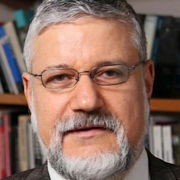
Janet Brooke
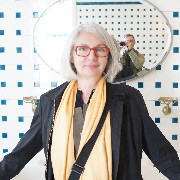
A senior museologist and art historian specializing in 19th century French art and Canadian collecting history, Janet Brooke has been Curator of European Art at the Montreal Museum of Fine Arts, Senior Curator of Old Master Art and Interim Chief Curator at the Art Gallery of Ontario, and Director of the Agnes Etherington Art Centre, Queen’s University. She has published widely, and taught and lectured on curatorial research practices, notably at the University of Toronto, McGill University, and Université de Montréal, as well as at Concordia. She is currently working as an independent scholar. In 2001, she co-organized the international Canadian Symposium on Holocaust-era Cultural Property (Canadian Museums Association/Canadian Jewish Congress), and in 2007 helped steer the Canadian Art Museum Directors Organization’s national “Report on Provenance Research Needs for Holocaust-Era Cultural Property in Canadian Art Museums” for the Department of Canadian Heritage. More recently, she spearheaded the development of the Canadian Art Museum Directors Organization’s “Holocaust-era Provenance Research and Best-Practice Guidelines Project”, funded by the Department of Canadian Heritage, and serves as its Provenance Research Specialist.
Frank Chalk

The Director of the Montreal Institute for Genocide and Human Rights Studies (MIGS), Professor Chalk earned his PhD in History at the University of Wisconsin (Madison). He was a Fellow of the Center for Advanced Holocaust Studies of the U.S. Holocaust Memorial Museum in Washington, DC and has taught at Texas A & M University, also serving as a Fulbright Professor at the University of Ibadan (Nigeria). His publications include The History and Sociology of Genocide: Analyses and Case Studies (Yale University Press, 1990, with Kurt Jonassohn) and Mobilizing the Will to Intervene: Leadership to Prevent Mass Atrocities (McGill-Queen’s University Press, 2010, with Roméo Dallaire, Kyle Matthews and others) as well as chapters in various books and articles in The Canadian Journal of African Studies and Holocaust and Genocide Studies. Professor Chalk is a former president of the Canadian Association of African Studies and the International Association of Genocide Scholars.
Alan Corbiere
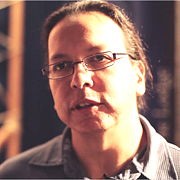
Alan Ojiig Corbiere, Bne doodem (The ferocious and predatory Ruffed Grouse clan), is Anishinaabe from M`Chigeeng First Nation on Manitoulin Island. He was educated on the reserve and then attended the University of Toronto for a Bachelor of Science, before entering York University where he earned his Master of Environmental Studies. His graduate studies focussed on Anishinaabe narrative and language revitalization. For five years he served as the Executive Director at the Ojibwe Cultural Foundation in M`Chigeeng, a position which also encompassed the roles of curator and historian. Currently he is the Anishinaabemowin Revitalization Program Coordinator at Lakeview School, M`Chigeeng First Nation, helping to ensure the implementation of bilingual education for the first time in the history of the community. Author and co-author of a number of articles and catalogue essays on cultural production, Corbiere researches and lectures extensively on early interactions between First Nations communities and Europeans, emphasizing the importance of such objects as wampum belts in reading the past.
David D’Arcy
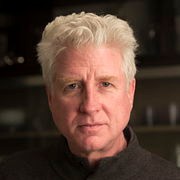
David D‘Arcy is a critic and journalist who writes and broadcasts on the cultural scene. He is a correspondent for The Art Newspaper, a critic for Screen International and BBC Radio, and writes about film for many publications—including the San Francisco Chronicle and The National (Abu Dhabi)—as well as for artinfo.com (on his blog Outtakes). He covered the arts for 21 years for National Public Radio, until the Museum of Modern Art complained to NPR about his reporting on its role in the Portrait of Wally scandal, involving a Nazi-looted painting by Egon Schiele on view at MoMA.
Clarence Epstein
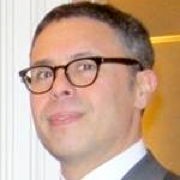
Clarence Epstein is Director of Special Projects and Cultural Affairs in the Office of the President of Concordia University. Responsible for matters of cultural property, museum relations and built heritage, he oversees one of the largest public art programs of any Canadian university and the “Quartier Concordia” urban planning project. However, the dossier which has received the greatest public attention relates to Concordia's efforts in recovering hundreds of paintings lost during the Nazi era by the art dealer, collector and benefactor – Dr. Max Stern. Acting on behalf of the three university beneficiaries of Dr. Stern’s estate – Concordia University, McGill University and the Hebrew University of Jerusalem - Concordia is successfully spearheading a worldwide restitution project. The moral, legal, and financial imperatives that are in constant play when major educational institutions commit to addressing looted art issues has propelled this project to the front of the international stage. Dr Epstein is also an Affiliate Associate Professor in the Department of History.
Sherry Farrell Racette
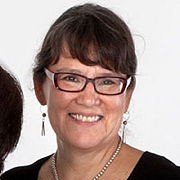
Sherry Farrell Racette is an Associate Professor in the Departments of Native Studies and Women and Gender Studies at the University of Manitoba, Winnipeg. She is of First Nations and Irish ancestry and is a member of the Timiskaming First Nation. Farrell Racette has worked extensively in museum collections, examining material culture as encoded objects that carry history, story and knowledge. Her most recent publications include: “This Fierce Love: Gender, Women and Art Making.” in Art in Our Lives: Native Women Artists in Dialogue, Cynthia Chavez Lamar, Sherry Farrell Racette, ed. with Lara Evans (SAR Press 2010) and “Traditional Arts and Media: Resilience and Survivance,” in Clearing a Path: New Ways of Seeing Traditional Indigenous Art, Carmen Robertson and Sherry Farrell Racette, eds. (Canadian Plains Research Centre 2009). Farrell Racette is a practicing artist and a curator who has worked on exhibitions in various cities in Canada and in Paris, France.
Donna-Lee Frieze
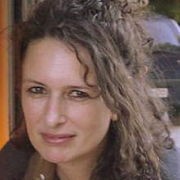
Dr. Donna-Lee Frieze, a genocide studies scholar, is a Visiting Fellow at the Alfred Deakin Research Institute, Deakin University, Melbourne and a Prins Senior Fellow at the Center for Jewish History in NYC. She is also the First Vice President of the International Association of Genocide Scholars and the editor of Lemkin’s autobiography, Totally Unofficial (Yale University Press, 2013). She taught a graduate unit, “Genocide,” for over 10 years at Deakin University, and has published widely on the Armenian genocide, the Holocaust and the Bosnian genocides in relation to testimony, film and philosophy. She was the academic advisor for the 2009-2010 six-month exhibition on Raphael Lemkin at the Centre for Jewish History.
Hana Gartner
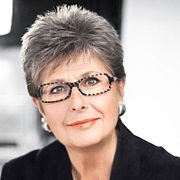
Hana Gartner graduated cum laude from Concordia University's Loyola College before kicking off her broadcasting career at Montreal's CJAD Radio in 1970. Renowned as the co-host of CBC-TV’s The Fifth Estate, she was later given an interview series, Contact with Hana Gartner, and in 1995 became the co-host with Peter Mansbridge of The National. Gartner left The National to return to The Fifth Estate in 2000, remaining with the program for the next 11 years until her retirement. Gartner has won five Gemini Awards, and has been nominated 18 times in Gemini hosting, anchoring, and interviewing categories during her career. She has also twice won Gemini’s prestigious “Gordon Sinclair Award” for excellence in broadcast journalism. In 2011, she was presented the Michener Award for her investigation into the life and death of a troubled teen who died while in the Federal custody.
Catherine MacKenzie
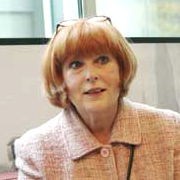
Professor MacKenzie, educated as an architectural historian at the University of Toronto and a long-time member of Concordia’s Art History Department, has been involved in the past eight years in research projects and public lecturing related to the Nazi looting of art from Jewish art dealers and collectors, and is the originating curator of the travelling exhibition entitled Auktion 392: Reclaiming the Galerie Stern, Düsseldorf. Her teaching has exposed the sorry record of the art world in responding to the cultural crimes of the Holocaust era, and as a former Chair of the Mel Hoppenheim School of Cinema , she is convinced that film can play an important role in holding present-day museums and collectors accountable for their practices.
Marc Masurovsky
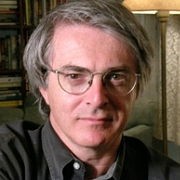
Marc Masurovsky co-founded the Holocaust Art Restitution Project (HARP) in 1997 and has served as its Director of Research and as a Board member of the Presidential Advisory Commission on Holocaust Assets in the United States. He currently serves as the Director of the Provenance Research Training Program (PRTP) of the European Shoah Legacy Institute. He has researched the question of assets looted during the Holocaust and World War II since 1980 and has worked as an expert historian on a class-action lawsuit for Jewish claimants seeking restitution of lost accounts and other liquid assets from Swiss banks. Masurovsky earned his M.A. in Modern European History from American University in Washington, D.C. In 2006, he published Le festin du Reich (with Fabrizio Calvi, Editions Fayard, Paris), which discusses the failure of postwar Allied policy to come to terms with the wholesale expropriation of Jewish-owned property in Europe, with special emphasis on France.
Robert Melson
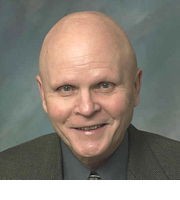
Robert Melson is Professor Emeritus at Purdue University, where he taught political science and was a charter member of the Jewish Studies Program. In 2005-7, he was the Cathy Cohen-Lasry Distinguished Professor in the Strassler Family Center for Holocaust and Genocide Studies at Clark University. In 2003-2005, he was the President of the International Association of Genocide Scholars (IAGS). Prof. Melson’s publications include Revolution and Genocide: On the Origins of the Armenian Genocide and the Holocaust (University of Chicago Press, 1992/96), which won the international award for Human Rights books for 1993 from Leiden University, The Netherlands, and False Papers (University of Illinois Press, 2000), which was a finalist for the National Jewish Book Award for 2001.
Janis Monture

Janis Monture is from Six Nations of the Grand River, Mohawk Nation Turtle Clan. Currently, she is the Executive Director of the Woodland Cultural Centre, one of the largest First Nations-run cultural centres/museums in the country. In March 2013, she presented to the University of Toronto’s Museum Studies Program on a “Policy on the Care and Storage of Ceremonial and Sacred Artifacts for the Woodland Cultural Centre.” Janis Monture has been with the Woodland Cultural Centre in her current position since 2003 and for an 18 month period was on secondment to Harbourfront Centre in Toronto as the Guest Artistic Director of Planet IndigenUS in 2009. She earned her Bachelor of Arts degree in History at the University of Western Ontario and her diploma in Museum Studies from Algonquin College. Janis Monture continues to volunteer in her community at Six Nations and in Brantford and is a board member of various organizations such as the Brant Historical Society, Brantwood Centre and Kaha:wi Dance Theatre.
Monica Eileen Patterson
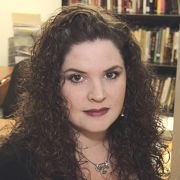
Monica Eileen Patterson is a 2012-2014 Banting Postdoctoral Fellow based in the Centre for Ethnographic Research and Exhibition in the Aftermath of Violence (CEREV) in the Department of History at Concordia. She received her doctorate in Anthropology and History and an additional certificate in Museum Studies from the University of Michigan. At CEREV, she is pursuing two projects based on her field and archival research in southern Africa: a monograph examining contested constructions of childhood in late apartheid South Africa; and an experimental exhibit that allows former and current South African children to reflect on their experiences of childhood and explore the meanings of the apartheid past and its present-day legacies. Dr. Patterson is coeditor of Curating Difficult Knowledge: Violent Pasts in Public Places (Palgrave Macmillan, 2011) and Anthrohistory: Unsettling Knowledge and Questioning Discipline (University of Michigan Press, 2011). As a curator, scholar, and activist, she is particularly interested in the intersections of memory, childhood, and violence in postcolonial Africa, and the ways in which they are represented and engaged in contemporary public spheres. In the fall of 2014, she will join the faculty of the Institute of Interdisciplinary Studies at Carleton University as Assistant Professor.
Mehmet Polatel
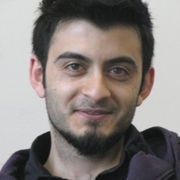
Mehmet Polatel is a historian focusing on late Ottoman history and the early Turkish republic. His research interests are in the fields of social conflicts, property transfer, genocidal regimes and state-society relations. He has conducted research on the fate of Armenian properties in the Ottoman Empire and the Republic of Turkey. Currently, he is a PhD candidate at Boğaziçi University and a research assistant at the History Department of Koç University in Istanbul. His publications include Confiscation and Destruction: The Young Turk Seizure of Armenian Properties (with Uğur Ümit Üngör, Bloomsbury, 2011) and 2012 Declaration: The Seized Properties of Armenian Foundations in Istanbul (with Nora Mildanoğlu, Özgür Leman Eren and Mehmet Atılgan), which was published as part of a research project by the Hrant Dink Foundation.
Morley Safer

Canadian news reporter Morley Safer is one of the world’s most distinguished journalists. At the beginning of his journalism career, he worked as a reporter for various newspapers in Canada including the Woodstock Sentinel Review, London Free Press, Toronto Telegram, Reuters and Oxford Mail. Morley Safer joined CBS News as a London-based correspondent in 1964 and eventually became London bureau chief, a post he held for three years. In 1970, he left London to replace Harry Reasoner on “60 Minutes,” and he continues to file reports on the news magazine to this day. Safer is the author of the best-seller Flashbacks: On Returning to Vietnam (Random House, 1990).
Mario Silva

Mario Silva is an international legal scholar who served as a Canadian Member of Parliament from 2004 to 2011. On December 15, 2011, Prime Minister Stephen Harper appointed him to chair the Task Force for International Cooperation on Holocaust Education, Remembrance and Research (ITF) in 2013. Silva holds a B.A. in Political Science from the University of Toronto, a "Certificat de Langue Francaise" from Paris-Sorbonne University, and a Master's degree in International Human Rights Law from the University of Oxford in the United Kingdom. Silva earned a Ph.D. in the Faculty of Law at the National University of Ireland, Galway. Silva's Ph.D. thesis is titled "Failed and Failing States: Causes and Conditions." He also serves as the honorary chair of the International Forum of Rights and Security (IFFRAS). In 2007, the President of the French Republic bestowed on him the title of Knight of the Order of the Legion of Honour (Ordre national de la Légion d'honneur). He has also been awarded the Order of Merit of Portugal and the Order of Rio Branco from Brazil.
Gavin Taylor
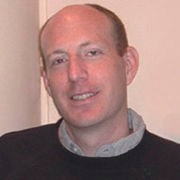
Gavin Taylor is a Senior Lecturer in the History Department at Concordia University. He studies in colonial North America, specializing in aboriginal-settler relations and the origins of treaty-making in New England, New France and New Netherlands. Taylor received his Ph.D. from the College of William and Mary, and has also worked as a journalist. He is currently writing a textbook for Oxford University Press provisionally titled Two Roads to Heaven: A History of Native-Settler Relations in North America. He has taught a broad range of courses in North American history, as well as on subjects related to public history and the politics of the past.
Robert Jan van Pelt
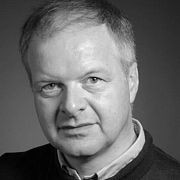
Robert Jan van Pelt is University Professor at the School of Architecture, University of Waterloo. Cultural historian and author, he earned a D.Litt. from Leiden University and has been awarded a Guggenheim Fellowship in recognition of his scholarly work. He has written several highly acclaimed books and is world-renowned for his extensive research into issues surrounding the architecture of the Holocaust and for his work against Holocaust denial, which was featured in Errol Morris's film “Mr. Death” (1999). His research brought him to the High Court in London as an expert witness in the David Irving Libel Trial. He is presently working on a book provisionally entitled Mazes of a Modern Minotaur: Camp, State and Society in Germany, 1900-1960. His publications include The Case for Auschwitz: Evidence from the Irving Trial (Bloomington and Indianapolis, Indiana University Press, 2002), and, with Debórah Dwork, Flight from the Reich: Refugee Jews, 1933-1946 (New York: Norton, 2009), Holocaust: A History (New York: Norton, 2002), and Auschwitz—revised edition (New York: Norton, 2002). Recently, he also edited the diary of David Koker, At the Edge of the Abyss: A Concentration Camp Diary, 1943-1944 (Evanston: Northwestern University Press, 2012).


